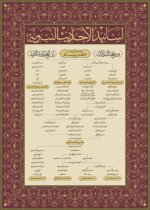Since I'm relatively new at studying the Quran and the Hadith and I only rely on the internet to do it I'm a bit lost about when are surahs and verses valid.
Some Muslims say the Quran verses are valid at all times but some say that some verses are specific to certain time and place in history and never to be used again.
That is the case with Quran 9:123 when some Muslims bring as context when the verse was revealed and therefore they assume it was meant to be used during that specific battle only.
Recently I brought up Quran 9:123
And the Hadith that explains it:
Moderator MidnightRose jumped into the discussion and said:
Let's see the important part:
Allah revealed an ayah in his case (Quran 9:25)
In his case meaning in the case of the son killing his father?
So here I'm confused:
Did Allah said that it was justified that the son killed his father because he was praising idols?
Did Allah's revelation only apply on this case?
What if other fathers or sons praise idols the same way it happened here?
Why would a revelation only be used once when the same situation can happen over and over in time?
I agree that the Hadith says this ayah was revealed because of this case but it doesn't say it was meant to be used only in this case.
Its like me throwing a piece of garbage on the street and a police officer stops and in a loud voice aiming at everybody around screams "Do not throw garbage on the street, its against the law"
Yes he warned everybody because of me but the act applies to anybody in time.
Some Muslims say the Quran verses are valid at all times but some say that some verses are specific to certain time and place in history and never to be used again.
That is the case with Quran 9:123 when some Muslims bring as context when the verse was revealed and therefore they assume it was meant to be used during that specific battle only.
Recently I brought up Quran 9:123
Sahih International: O you who have believed, fight those adjacent to you of the disbelievers and let them find in you harshness. And know that Allah is with the righteous.
And the Hadith that explains it:
THE PROHIBITION OF TAKING THE IDOLATORS AS SUPPORTERS, EVEN WITH RELATIVES
Allah commands shunning the disbelievers, even if they are one's parents or children, and prohibits taking them as supporters if they choose disbelief instead of faith.
Allah warns,(You will not find any people who believe in Allah and the Last Day, making friendship with those who oppose Allah and His Messenger, even though they were their fathers or their sons or their brothers or their kindred (people).
For such He has written (predetermined) faith in their hearts, and strengthened them with a Ruh (proof, light and true guidance) from Himself. And He will admit them to Gardens (Paradise) under which rivers flow.) (58:22)
Al-Hafiz Al-Bayhaqi recorded that `Abdullah bin Shawdhab said, "The father of Abu `Ubaydah bin Al-Jarrah was repeatedly praising the idols to his son on the day of Badr, and Abu `Ubaydah kept avoiding him. When Al-Jarrah persisted, his son Abu `Ubaydah headed towards him and killed him. Allah revealed this Ayah in his case,(You will not find any people who believe in Allah and the Last Day, making friendship with those who oppose Allah and His Messenger.'') (58:22) Allah commanded His Messenger to warn those who prefer their family, relatives or tribe to Allah, His Messenger and Jihad in His cause.
Moderator MidnightRose jumped into the discussion and said:
I accept what moderator MidnightRose says but I fail to understand where he got the idea this only applies on the battle of Badr and is never to be used again.The quotation you used referred to the Battle of Badr. It's literally in the quotation. This was related to war.
Let's see the important part:
Here a son killed his father because his father kept praising idols. (this happened on the day of Badr) as moderator MidnightRose pointed out.Al-Hafiz Al-Bayhaqi recorded that `Abdullah bin Shawdhab said, "The father of Abu `Ubaydah bin Al-Jarrah was repeatedly praising the idols to his son on the day of Badr, and Abu `Ubaydah kept avoiding him. When Al-Jarrah persisted, his son Abu `Ubaydah headed towards him and killed him. Allah revealed this Ayah in his case,(You will not find any people who believe in Allah and the Last Day, making friendship with those who oppose Allah and His Messenger.'')
Allah revealed an ayah in his case (Quran 9:25)
In his case meaning in the case of the son killing his father?
So here I'm confused:
Did Allah said that it was justified that the son killed his father because he was praising idols?
Did Allah's revelation only apply on this case?
What if other fathers or sons praise idols the same way it happened here?
Why would a revelation only be used once when the same situation can happen over and over in time?
I agree that the Hadith says this ayah was revealed because of this case but it doesn't say it was meant to be used only in this case.
Its like me throwing a piece of garbage on the street and a police officer stops and in a loud voice aiming at everybody around screams "Do not throw garbage on the street, its against the law"
Yes he warned everybody because of me but the act applies to anybody in time.
Last edited:

